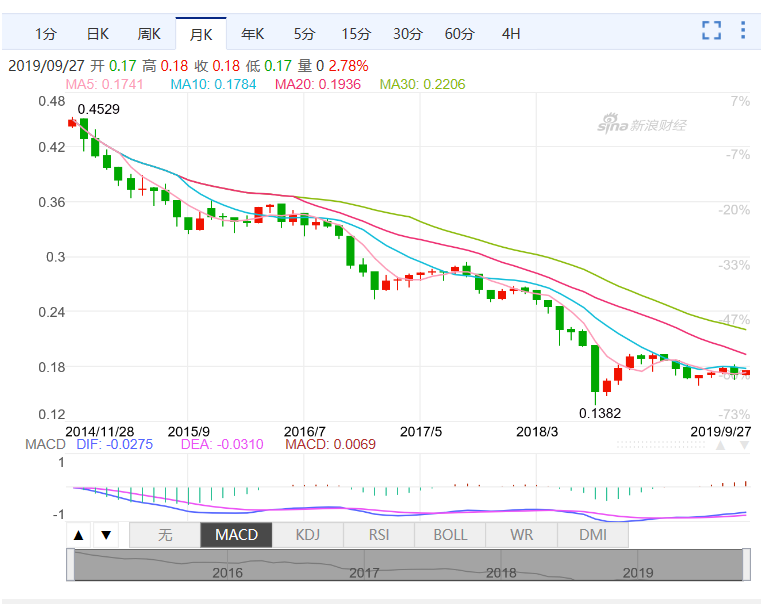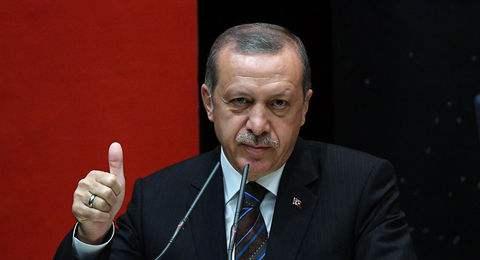The life-saving grass of cryptocurrency, the big country dream of Turkey
Text / Yi Bozhen
Produced / Mars Media
The Turkish government has finally announced its entry into the blockchain.
On September 18th, the Turkish Ministry of Industry and Technology released the 2023 Strategy in Ankara. According to the document, Turkey will establish an open source blockchain platform to launch the central bank's “blockchain-based” digital currency in the next four years. The document submitted to the Program and Budget Committee will serve as the government's economic roadmap from 2019 to 2023.
- Ethereum 2.0 shard development is basically completed, the first shard simulation will be demonstrated at the next developer conference
- Platform-as-a-service company StrongSalt receives $3 million in financing, and will soon release an encrypted API platform
- Explore: How to create a neutral, trust-free, scarce digital currency
According to the Coindesk media platform, in addition to implementing blockchain-based digital central bank funding, other measures include the use of blockchain technology for transportation and customs purposes, as well as the use of artificial intelligence and the Internet of Things and blockchain to improve public services.
The 2023 Strategy also states that the Ministry of Industry and Technology plans to work with Turkish regulators to create a regulatory sandbox for blockchain applications, as well as to establish a Payment Services and Electronic Money Institutions Association and the Istanbul Financial Technology Base. Revitalize the country's weak economy.

I still remember that in August last year, under the strong intensification of the strong dollar, the Lira exchange rate plummeted, setting a record low of 0.1382 lira against the US dollar. In early July this year, President Erdogan dismissed the central bank governor after a further interest rate hike caused Lira to fall further.
The economic structure is a serious problem, the debt ratio and inflation rate remain high, and the strong dollar has refused to raise interest rates. The diplomatic relations with the United States have deteriorated. Turkish President Erdogan has self-sufficient consequences and led the Turkish "grey rhinoceros". Try to save yourself.
First, the decline of the "Ottoman Empire"
Continuing the nationalist totalism of the Turkish father, Kemal, the Turkish President Erdogan has always had the dream of rebuilding the "Ottoman Empire."
Since becoming Prime Minister of Turkey in 2003, winning the first elected president in 2014 and re-electing in 2018, Erdogan has been in the Turkish political arena for nearly 20 years. In 2011, he was elected to the "Time" magazine of the year. Erdogan tried to restore the Ottoman Empire and was called "the Sultan of the New Era" by The Economist.
In the past year, Turkey has experienced a serious financial and financial crisis. On August 10, 2018, the lira fell by 20% against the US dollar within one day. At that time, the incident of Ctrip was once smashed by wool, and a wave of romantic Turkish tourism.
In fact, from the exchange rate map that can be seen, the lira has been depreciating against the dollar over the years, and the Turkish central bank is struggling to support it. According to Reuters, in order to prevent the complete collapse of the sovereign currency, in May this year, the Turkish Ministry of Finance decided to transfer funds from the central bank to make up for the deficit, which made its economic system more vulnerable and could not withstand a small financial impact.
It seems that the dream of Turkey’s President Erdogan’s great country is really faltering. So, what is the cause of the economic crisis in Turkey?
As a country spanning Eurasia, Turkey was formerly the Ottoman Empire. It once dominated the world and inherited the culture and Islamic culture of the Eastern Roman Empire. Therefore, the East and West civilizations were integrated. Trying to restore the Ottoman Empire has already demonstrated Erdogan’s ambitions.

After a military coup in 2016, Erdogan has now consolidated and expanded his power. After the constitutional referendum in July 2017, since the Ottoman Empire established its parliamentary system in 1876, Turkey adopted the presidential system for the first time. Erdogan became the most powerful president since Turkey’s founding father, Kemal.
On the one hand, he has promoted Islamic culture and has no longer complied with US directives in diplomacy. He has openly imported oil from Iran and has a tense relationship with the United States and the European Union. Close to Russia and occupied the Aflin region in Syrian military operations;
On the other hand, he has toughly intervene in the central bank's monetary policy, adopting economic authoritarianism, using the government to vigorously develop infrastructure, borrow heavily, and issue additional banknotes. He believes that the economy has been in rapid development, as long as it exceeds the printing of banknotes. The speed, people will not feel the currency problem.
He declared that "interest rates are the mother of all evils" and at the same time reduce "interest rates, inflation, fiscal deficits and unemployment rates."
However, the confidence of the president’s fans has often met with realities, and the economic downturn in Turkey is not based on the will of the president. In 2018, after the Fed raised interest rates, a strong dollar hit, Erdogan refused to raise interest rates, the Turkish lira repeatedly suffered a sell-off, the foreign reserves were lost, the stocks and debts were tripled, and the economic crisis was so serious that Russia, Iran and other allies could not help.
Erdogan only pointed the finger at the United States, arguing that the reason for the collapse of the Turkish economy was that Americans raised their tariff rates in the face of a sharp depreciation of the Turkish currency. However, in 2018, the United States imposed tariffs on steel and aluminum products in the world's major economies, and not all countries have serious economic problems.
Second, the cryptocurrency role in the new economic roadmap
After the Turkish lira plunged against the dollar and other major currencies, the Turks’ interest in cryptocurrencies such as Bitcoin is increasing, and cryptocurrencies are becoming more popular in Turkey.
According to a survey conducted by ING Bank's media department in 2018, Turkey is already the country with the highest proportion of bitcoin holders in Europe, with 18% of Turkish respondents saying they have cryptocurrencies.
According to CoinDesk, a cryptocurrency media platform, Andy Cheung, head of operations at OKEx, a global crypto exchange, said that since the platform was extended to Turkey on March 26, more than 30,000 Turkish users have registered. The platform. Turkey's growth as the leading bitcoin market is also supported by other data.
Andy Zhang said that Turkey is the only country with a high proportion of independent cryptocurrency ownership, and it has one of the most powerful and promising encryption communities in the world.

At the same time, according to CoinMarketCap data, the Lira accounted for 6% of the cryptocurrency liquidity in 2019 and continued to maintain its ranking in 2018, becoming the fifth most popular legal currency pair cryptocurrency pair in the world. According to BtcTurk CEO Ozgur Guneri, inflation is slowly and continually driving Turkey's demand for bitcoin.
Guneri said his cryptocurrency exchange has attracted more than 30,000 new users since 2019. These contracts prove Turkey's relatively high encryption adoption rate.
"We have never seen a decline in the number of users, but the growth rate may decline. Even on the bloodiest day, we have to sign new users," Guneri said, adding that the retail division of BtcTurk has been in April. For several days, the transaction amounted to 14 million US dollars.
This figure seems small compared to the US unicorn company like Coinbase, but the influence of Turkish merchants in the global market is growing.
Fluctuations in inflation have been the main driver of Turkish traders' adoption of cryptocurrencies. Guneri said that when the lira fell by about 20% against the US dollar in August 2018, BtcTurk's trading volume jumped more than 100%.
Guneri believes that the dollar and the euro are no longer hard money, and bitcoin has become a hard currency. Of course, bitcoin is a new generation of value storage, and sometimes even a speculative approach.

The public’s enthusiasm for cryptocurrencies has a direct impact on the Turkish authorities. In fact, the idea of the Turkish national cryptocurrency has been brewing for a long time.
In 2018, some Turkish officials called for the introduction of a state-controlled and regulated national bitcoin called "Turkcoin". Ahmet Kenan Tanrikulu, former Turkish Minister of Industry and Vice President of the National Alliance Movement Party (MHP), said: "The world is moving towards a new digital system. Turkey should create its own digital systems and currency before it is too late."
And Turkish institutions have been using blockchain technology in various fields. In August of this year, the Istanbul Blockchain and Innovation Center was established at Bahceşehir University as the most important research, opening and innovation center in Turkey using blockchain technology. In early September, Takasbank, the clearing, settlement and custodian bank in Istanbul, Turkey, announced the opening of a physical gold trading platform based on blockchain.
3. Can cryptocurrency really become a lifeline?
Since Bitcoin does not have physical assets and certain basic characteristics of money within the scope of the Capital Markets Law, its legal status is still highly controversial in many countries around the world. In contrast, the Turkish authorities’ attitude towards cryptocurrency is fairly tolerant.
In the face of the enthusiasm of the people, the Turkish government has taken a positive move. It passed the relevant laws of the parliament, for example, the Turkish 2023 development plan, the establishment of a blockchain platform to issue national cryptocurrency, and the committee also plans to encourage the securitization of bank assets.
This is the first cryptocurrency supported by the Federal Central Bank in another country in the Middle East after Venezuela introduced the “oil coin” supported by oil reserves.
Turkish citizens can easily access cryptocurrencies such as Bitcoin through the Turkish platform like Koineks.com, they can exchange Bitcoin and substitute coins with Turkish lira.
As the price of Bitcoin continues to rise, many Turkish stores accept it as a payment method. According to foreign media reports, in Turkey, from real estate to furniture, in theory, you can use Bitcoin to shop.
At the same time, the number of Turkish companies that accept Bitcoin as a means of payment has increased significantly. It is understood that there are currently 50 to 60 companies officially accepting payments in Bitcoin and other cryptocurrencies.
An Istanbul lawyer said that there is no cryptocurrency regulation in Turkey, which legislators believe is not suitable for restricting or regulating the trading of these digital currencies in the country. Instead, it seems that they may even be interested in issuing their own digital currency. And officials in the country seem to be more interested than banning the taxation of bitcoin.
At present, Turkish President Erdogan has not seen any remarks about cryptocurrency. Earlier this month, Erdogan stated that the Turkish economy must grow by 5% by 2020.

Erdogan
From this 2023 strategic plan, Turkey seems to be interested in reviving the Turkish economy through the research and development of new technologies such as blockchain to achieve Erdogan's economic growth goals.
Can the cryptocurrency become a lifeline for the Turkish country to revitalize the "Ottoman Empire"? At present, it seems difficult to make a conclusion. The cryptocurrency represented by Bitcoin was born in Nakamoto's subversive power, decentralized thoughts, and the Turkish politics of East Asian rights activism and Erdogan's personal style seem to be somewhat out of place.
Erdo Anchi’s political career has not retired for many years. He once led the Turkish economy to a high-speed development, but in recent years, he has slandered with Europe and the United States, suppressed the Glan faction, detained American citizens, and became Trump’s “target”; the economic debt is high, the lira The exchange rate deteriorated, the bond market collapsed, and Turkey was handed over to the abyss of long-term economic deterioration.
The intellectual class often expects and evaluates social and economic development with its ideal political and economic framework, but the historical development logic is often different. New technologies may be an important means of economic reform, but to revitalize the economy and achieve recovery, perhaps it is necessary to start from its fundamental political and economic system reforms in order to reproduce Turkey’s dream of a big country.
We will continue to update Blocking; if you have any questions or suggestions, please contact us!
Was this article helpful?
93 out of 132 found this helpful
Related articles
- Babbitt column | The end of the retail financing era, the beginning of the institutional financing era
- QKL123 market analysis | Bitcoin plummeted, "delivery day effect" pot? (0927)
- The number of lightning network nodes broke for the first time and increased by 3.17% in the past 30 days.
- Mine pool coin, the next platform coin?
- Invoices, justice, poverty alleviation, government applications have become the blockchain to take the lead in the field?
- Want to put Bitcoin and Ethereum into foreign exchange reserves, Venezuela has finally done a reliable thing?
- Notes | Multicoin essays sing empty anonymous coins, coins Ann released Defi research report






